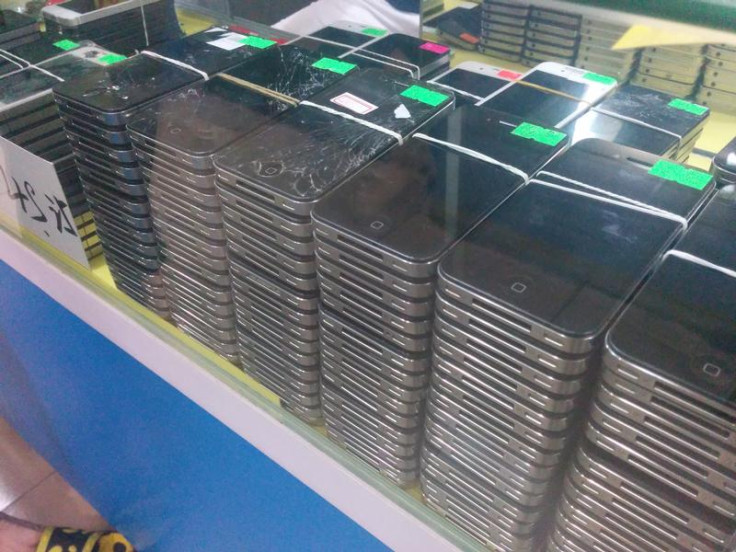Earth Day 2017: Apple's controversial policies over 'right to repair' and recycling
Apple wants to stop third parties from using spare parts to repair older products like iPhones and iPads.

In order to save the environment, on 19 April, Apple announced its hopes to, one day, build all iPhones, iPads, Apple Watches and MacBooks out of 100% recyclable materials – even though it doesn't yet know how to achieve this.
This is a great pledge to make, however it doesn't consider the electronic giant's other more controversial efforts, such as the attempts to strike down the Right to Repair legislation being considered in several US states.
The point of Right to Repair is that third parties will be allowed to utilise spare parts from older, unwanted iPhones and iPads to repair devices so that they last longer. This means consumers can hold onto their beloved devices for longer, and parts of unwanted products can be recycled, which is good for the environment. So what's not to like?
Apple is strongly opposed to third parties repairing its devices as, it argues, this will enable other firms to learn its trade secrets, as well as make it harder to keep its products secure for consumers.
"If Apple win this battle, the cost of repairing devices will remain unjustly high as only certified shops will be able to assist. Apple is one of many tech manufacturers that hike up their repair prices leading users to 'buy new', rather than 'repair old', and have an estimated 90% profit margin for each repair," UK-based phone repair firm Lovefone's chief executive Robert Kerr told IBTimes UK.
"They don't supply official parts, demonise the third party repair industry and void warranties at any sign of third party intervention. Imagine owning a VW Golf and being told you can only get it serviced at one of their garages at inflated prices. No one would stand for that."

Apple says it is doing more than enough for the environment as it is. Its own recycling programme Apple Renew promotes refurbished devices, and it has an army of disassembly robots – dubbed Liam – that salvaged aluminium from unwanted iPhone 6 enclosures and used them to build the Mac Mini computers.
But Kerr disagrees — he claims that Apple's refusal to work with third parties means that overall more e-waste is being generated than saved. At the moment, the UK's annual e-waste output is equivalent to the weight of 120 double-decker buses, and overall, the world's global e-waste outbut is equivalent to 187 Empire State buildings.
The components of electronic devices often contain harmful metals, acids and plastics such as lead, cadmium, chromium, brominated flame retardants or polychlorinated biphenyls which are extremely dangerous to wildlife and the environment.
It is extremely expensive for countries to dispose of e-waste, and reports have shown that many developed nations including the UK have been illegally exporting thousands of kilotons of e-waste to developing nations.
"In fighting Right to Repair legislation, the industry lobbyists' most compelling argument to lawmakers was that broken glass could cut the fingers of consumers who try to repair their screens.
"Seriously? The ugly truth is that manufacturers and their lobbyists are hitched to a linear consumption model. Until we move to a circular economy where consumers buy products 'as a service' rather than own it outright they will see the third party repair industry as a thorn in the side of their sales targets. In the meantime the e-waste will keep piling up."
© Copyright IBTimes 2025. All rights reserved.






















